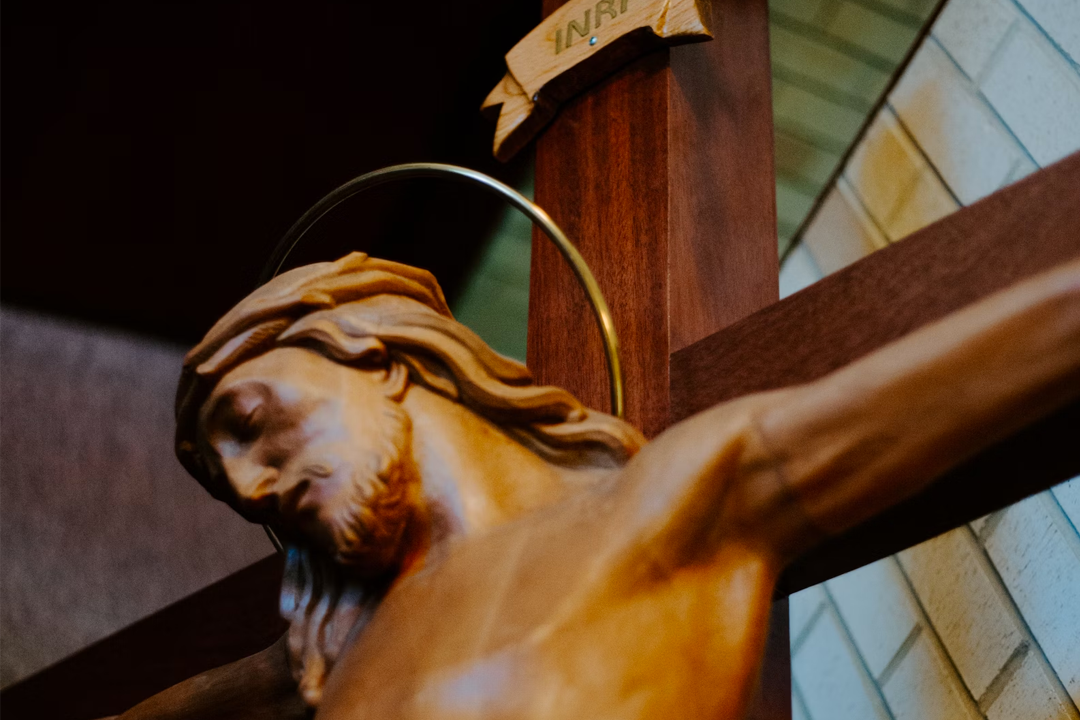A new report from the U.S. House Judiciary Committee and the Select Subcommittee on the Weaponization of the Federal Government accused FBI analysts of knowingly using untrustworthy sources in categorizing certain Catholic groups as potential domestic terrorists earlier this year.
One of these sources is Montgomery's Southern Poverty Law Center (SPLC), a far-left activist organization that purports to categorize hate and extremist groups on its "hate map." It has long been accused of tarnishing conservative and libertarian organizations by falsely labeling them racist and placing them on a list with the Ku Klux Klan and other white supremacist organizations.
The Judiciary Committee's report is in response to a memorandum from FBI Richmond in January, which stated: "The increasingly observed interest of racially or ethnically motivated violent extremists (RMVEs) in radical-traditionalist Catholic (RTC) ideology almost certainly presents opportunities for threat mitigation through the exploration of new avenues for tripwire and source development."
The memorandum suggested that violent extremists will likely grow more interested in what it deemed "radical-traditionalist Catholic" ideas in the months leading up to the 2024 election. It cited an SPLC's web page accusing nine Catholic organizations across the United States of being "hate groups."
The SPLC specified that what it means by "radical traditionalists" is not synonymous with "traditionalist" Catholics, generally speaking, though both prefer the Latin Mass over masses said in vernacular languages.
After the memorandum, marked "UNCLASSIFIED/FOR OFFICIAL USE ONLY," was leaked on the website UncoverDC in February, the FBI received considerable backlash.
Bishop Barry Knestout of the Diocese of Richmond called the memo a "threat to religious liberty" and asked lawmakers to ensure the free exercise of the freedom of religion.
The United States Conference of Catholic Bishops (USCCB) responded to the document, reasserting the Catholic Church's teaching on "the inherent dignity of each and every person." The response also reiterated Knestout's sentiments, suggesting the memo relied on "dubious sourcing" and engaged in "religious profiling."
"We encourage federal law enforcement authorities to take appropriate measures to ensure the problematic aspects of the memo do not recur in any of their agencies' work going forward," the response read.
Alabama Attorney General Steve Marshall joined several other attorneys general in condemning the memorandum.
In February, the FBI told the Catholic News Agency, a service of Irondale-based Eternal World Television Network (EWTN), that it would remove the document because "it does not meet [its] exacting standards."
Nevertheless, the Judiciary Committee began investigating the federal agency for the memo. Judiciary Committee Chairman Jim Jordan (R-Ohio) issued a subpoena to FBI Director Christopher Wray in April and requested documents related to the memo.
According to the Judiciary Committee report, the documents received following the subpoena "show that the FBI singled out Americans who are pro-life, pro-family, and support the biological basis for sex and gender distinction as potential domestic terrorists." It also accused the momo of relying on a single investigation in which the subject described himself as a "radical-traditional Catholic" even though FBI employees "could not define the meaning of an RTC when preparing, editing, or reviewing the memorandum."
"The Committee and Select Subcommittee's oversight shows that the FBI abused its counterterrorism tools to target Catholic Americans as potential domestic terrorists," the new report read. "The Committee and Select Subcommittee discovered that the FBI relied on at least one undercover agent to develop its assessment, and the FBI even proposed developing sources among the Catholic clergy and church leadership."
"Not only did the FBI propose to develop sources, but it already interviewed a priest and choir director affiliated with a Catholic church in Richmond, Virginia, for the memorandum," it continued. "Most concerning of all, without the disclosure of the whistleblower, the Richmond memorandum would still be operative in FBI systems, violating the religious liberties of millions of Catholic Americans."
This is not the first time the FBI has received criticism for its surveillance of a religious community.
The FBI used similar surveillance tactics in Muslim mosques in the early 2000s. Muslim leaders in Southern California sued the FBI in 2011, accusing the agency of unlawfully targeting members of the Islamic community. The case made it to the U.S. Supreme Court (SCOTUS) in 2022, and the nation's highest court sided with the FBI, which argued the lawsuit could result in the disclosure of classified information.
Nor is it the first interaction between the FBI and the SPLC. The SPLC has a long history of working with federal law enforcement agencies, including the FBI.
In October, U.S. Sens. Chuck Grassley (R-Iowa) and James Lankford (R-Okla.), in a letter to Wray, condemned the FBI for still using the SPLC to obtain data about hate and extremist groups in the United States.
To connect with the author of this story or to comment, email will.blakely@1819news.com or find him on Twitter and Facebook.
Don't miss out! Subscribe to our newsletter and get our top stories every weekday morning.










